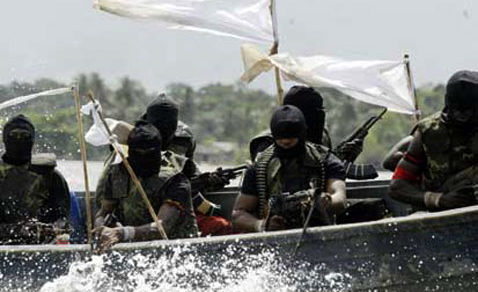Gulf of Guinea becomes this decade’s Somalia as kidnapping cases soar

The International Chamber of Commerce’s International Maritime Bureau (IMB)’s annual piracy report recorded an increase of piracy and armed robbery incidents in 2020 with the Gulf of Guinea the clear hotspot as kidnappings off West Africa approach Somalia levels from a decade ago.
In 2020, IMB’s Piracy Reporting Centre (PRC) received 195 incidents of piracy and armed robbery against ships worldwide, in comparison to 162 in 2019. The incidents included three hijacked vessels, 11 vessels fired upon, 20 attempted attacks, and 161 vessels boarded. The rise is attributed to an increase of piracy and armed robbery reported within the Gulf of Guinea as well as increased armed robbery activity in the Singapore Straits.
Globally, 135 crew were kidnapped from their vessels in 2020, with the Gulf of Guinea accounting for over 95% of crew numbers kidnapped. A record 130 crew members were kidnapped in 22 separate incidents. Since 2019, the Gulf of Guinea has experienced an unprecedented rise in the number of multiple crew kidnappings. In the last quarter of 2019 alone, the Gulf of Guinea recorded 39 crew kidnapped in two separate incidents.
Incidents in the Gulf of Guinea are particularly dangerous as over 80% of attackers were armed with guns, according to the latest IMB figures. All three vessel hijackings and nine of the 11 vessels fired upon in 2020 related to this region. Crew kidnappings were reported in 25% of vessel attacks in the Gulf of Guinea – more than any other region in the world. Once kidnapped, crew are removed from their vessel and can be held on shore until their release is negotiated. The furthest crew kidnapping in 2020 occurred almost 200 nautical miles (NM) from land with the average kidnapping incident taking place over 60 NM from land, according to IMB.
The rise in kidnapping incidents further away from shorelines demonstrates the increasing capabilities of pirates in the Gulf of Guinea. Given these developments, IMB advises vessels in the region to remain at least 250 NM from the coast at all times, or until the vessel can transit to commence cargo operations at a berth or safe anchorage.
“The latest statistics confirm the increased capabilities of pirates in the Gulf of Guinea with more and more attacks taking place further from the coast. This is a worrying trend that can only be resolved through increased information exchange and coordination between vessels reporting and response agencies in the Gulf of Guinea region. Despite prompt action by navies in the region, there remains an urgent need to address this crime, which continues to have a direct impact on the safety and security of innocent seafarers,” said Michael Howlett, director of the International Maritime Bureau.
Security consultants Dryad Global, in a recent report, noted that the shift in West African maritime criminal modus operandi and growing concern about maritime security in the Gulf of Guinea has prompted international efforts to boost regional naval capacity, including recent procurements of maritime-patrolling equipment by Angola, Cameroon, Republic of Congo, Nigeria and Senegal, among others.
However, navies in the region are reluctant to better fund their navies, given other priorities, which include addressing their vulnerability to land-based threats.
Active criminal syndicates continue to trawl the seas off West Africa in the opening two weeks of 2021 looking for easy ransom targets.


Above subject title of Somalia maritime security is absolutely fake information about tactic delay to mislead Somalia Government suggestion to conclude the World’s watchdog group of Somalia maritime security
This article is not mentioning one single case that happened last year 2020 in somalia seashore and all most talking about West Africa which is cleared to their statistic chart that shows nothing to do with the Somali maritime security
Whereas Somali’s are well aware and know that this group was almost creating to loot and dried out of the Somali seashore that is rich pest fish in the world
This group is known fish piracy and i hope Somali government will take a legal steps to stop current prolonged worlds fish piracy groups in all Somali seashores